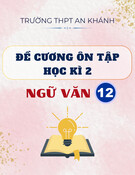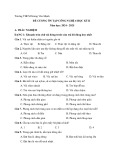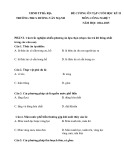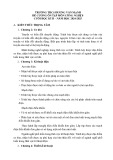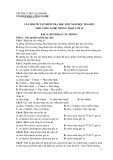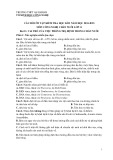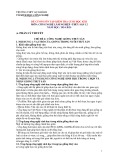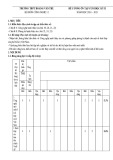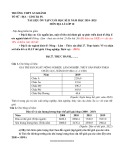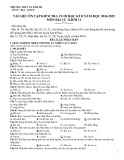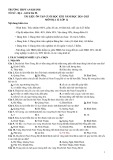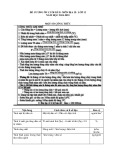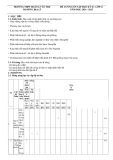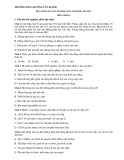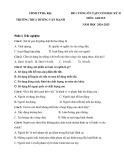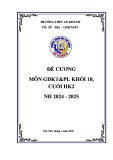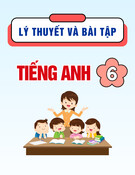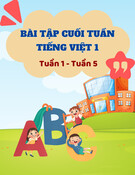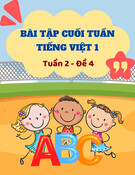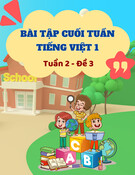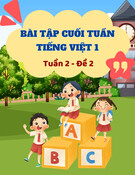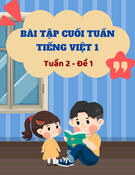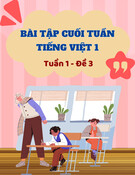
1
UBND THÀNH PHỐ VŨNG TÀU
TRƯỜNG THCS LƯƠNG THẾ VINH
ĐỀ CƯƠNG ÔN TẬP CUỐI HỌC KỲ II – TIẾNG ANH 8
I. USE OF ENGLISH
A. VOCABULARY
1. When I make a ______ to my mother with my smartphone, I can see her on the phone screen.
A. text message B. phone call C. video call D. voice call
2. At the current time, humans do not have the ______ capacity to communicate by thought.
A. telepathy B. holography C. telephone D. face-to-face
3. I use my ______ to record videos for my YouTube channel.
A. voice messages B. social media C. webcam D. translation machine
4. A(n) ______ is one where all the participants are physically in the same place.
A. video conference B. online discussion C. social media D. face-to-face meeting
5. ______ is small digital image or icon used to express an idea, emotion, etc.
A. Voice B. Text C. Word D. Emoji
6. A ______ refers to an obstacle in communications between different languages or dialects.
A. language barrier B. body language C. carrier pigeon D. cultural difference
7. The object of their expedition was to ______ the source of the River Nile.
A. create B. invent C. discover D. develop
8. Fingerprint ______ sometimes need more time than usual to read your fingerprints.
A. screens B. computers C. scanners D. printers
9. With face ______, you can now unlock your phone by just looking at it!
A. recognition B. connection C. communication D. conference
10. Before the video conference, you should ______ your webcam to make sure that you are properly framed
and well-lit.
A. keep B. adjust C. zoom in D. focus
11. Nowadays, the most common ______ include fingerprint scanning, facial recognition, voice recognition,
and iris scanning.
A. devices B. chemical elements C. medicines D. biometrics
12. ______ typically refers to content that can be consumed in seconds or minutes, such as a short video or
interactive animation.
A. Nanolearning B. Experiment C. Remote learning D. Experience
13. In 1957 the Soviet Union launched the first satellite to ______ the Earth.
A. move B. orbit C. travel D. fly
14. If ______ existed and were living out there, what types of signals would they send us?
A. scientists B. astronauts C. aliens D. explorers
15. We can only see ______ in the sky at night because during the day the sunlight is so bright.
A. the Earth B. stars C. aliens D. UFO
B. PREPOSITIONS
1. There's a bus stop ______ the park, right on the other side of the road.
A. behind B. opposite C. next to D. in front of
2. I often see my friends ______ person, but sometimes we call via the internet.
A. on B. in C. at D. with
3. Their family photographs are displayed ______ the wall.
A. above B. under C. in D. on
4. I need to be at the station ______ 8 o'clock to catch the early train.
A. in B. for C. on D. by







